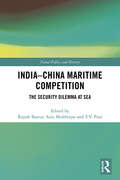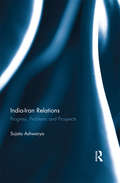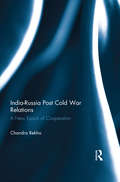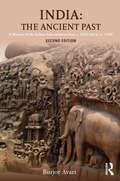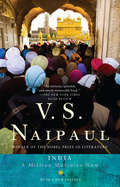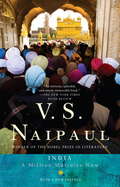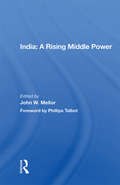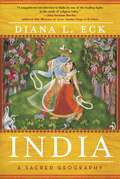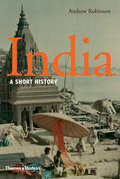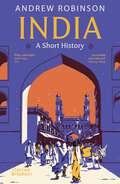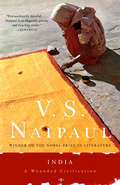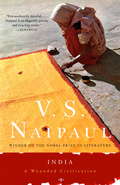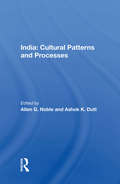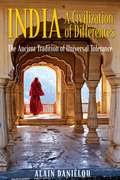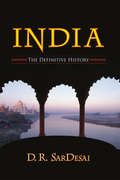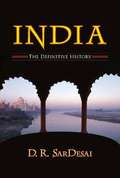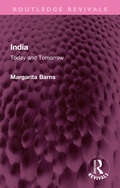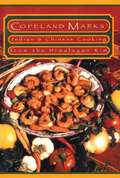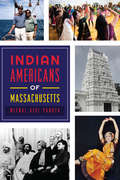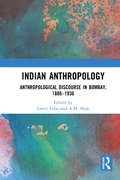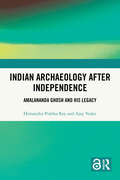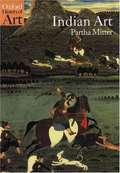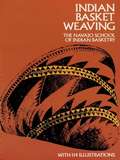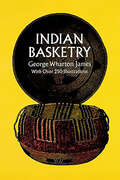- Table View
- List View
India-China Maritime Competition: The Security Dilemma at Sea (Cass Series: Naval Policy and History)
by T. V. Paul Rajesh Basrur Anit MukherjeeThis edited volume critically examines the concept of the “security dilemma” and applies it to India–China maritime competition. Though frequently employed in academic discussion and popular commentary on the Sino-Indian relationship, the term has rarely been critically analysed. The volume addresses the gap by examining whether the security dilemma is a useful concept in explaining the naval and foreign policy strategies of India and China. China’s Belt and Road Initiative and its expansive engagement in the Indian Ocean Region have resulted in India significantly scaling up investment in its navy, adding ships, naval aircraft and submarines. This volume investigates how the rivalry is playing out in different sub-regions of the Indian Ocean, and the responses of other powers, notably the United States and prominent Southeast Asian states. Their reactions to the Sino-Indian rivalry are an underexplored topic and the chapters in this book reveal how they selectively use that rivalry while trying to steer clear of making definite choices. The book concludes with recommendations on mitigating the security dilemma. This work will be of great interest to students of strategic studies, international relations, maritime security, and Asian politics.
India-Iran Relations: Progress, Problems and Prospects
by Sujata AshwaryaThis book examines India’s relationship with Iran since the post-World War II period and its unique search for meaningful bilateral ties in the West Asian region in the context of the changing regional and international scenarios. The four chapters highlight the achievements and constraints on the development of Indo-Iranian relations during the Cold War era; opportunities and limitations in bilateral engagements between India and Iran in the aftermath of the Cold War; impact of the ‘US factor’ on the development of crucial Indo-Iranian energy ties and the limitation imposed by India’s relations with Israel and Saudi Arabia on the India–Iran ties. More specifically, the four chapters touch on the central drivers—energy imports, access to Central Asia, cooperation in Afghanistan, mutual trade and economic investments and security ties—of India’s Iran policy, and how they structure India’s interaction with the other countries of the region and impact on the articulation of national interests. Combining a rich interplay of facts and figures with nuanced analyses, this volume will be a valuable resource for scholars, policymakers, diplomats and any interested reader desirous of knowing more about Indo-Iranian relations in particular and India’s West Asia policy in general. Please note: Taylor & Francis does not sell or distribute the Hardback in India, Pakistan, Nepal, Bhutan, Bangladesh and Sri Lanka
India-Russia Post Cold War Relations: A New Epoch of Cooperation
by Chandra RekhaPost Cold War international relations have undeniably been a litmus test for the bilateral relations between India and Russia. With the emergence of a new international system, the foreign policies of both countries vacillated to explore new avenues of partnerships with other international players, an opportunity that otherwise proved effective to a large extent. National priorities and the geo-political architecture remodelled by the US, thus, compelled New Delhi and Moscow to pursue a foreign policy that moved away from serving the interests of each other. While defining the trends in the bilateral relations between the two countries, the strategic community has questioned whether the relationship can remain as special and strategic as it had been in the past. Are both countries still as relevant to one another as they once were? <P><P>As the constant debate revolves around these questions, the two entities have, however, indicated a certain level of distinguishing characteristics in order to address the complexities and challenges in the partnership and have acknowledged that their relationship is not only special but also indispensable. What has also continued to remain undamaged and an integral part of the bilateral relations is mutual trust, understanding and concern, thus, resulting in maturity and pragmatism, irrespective of the uncertainties that the two countries face. It is in this context, that the new stage in the bilateral relations between the two countries requires a thorough assessment. It stands to reason that with the developments that are taking place in the current international milieu, there is a need for India and Russia to reemphasise their strong strategic partnership, goodwill and diplomatic trust that have stood the test of time. This book undertakes a serious assessment of the strategic partnership in the contemporary international set up. The seven chapters of the book attempt to address the myriad challenges through detailed analyses and evaluation of the partnership between India and Russia in various spheres, including the political, defence, economic, nuclear, energy, science and technology, security, and strategic engagement. <P><P>Please note: Taylor & Francis does not sell or distribute the Hardback in India, Pakistan, Nepal, Bhutan, Bangladesh and Sri Lanka
India: A History of the Indian Subcontinent from c. 7000 BCE to CE 1200
by Burjor AvariIndia: The Ancient Past provides a clear and systematic introduction to the cultural, political, economic, social and geographical history of ancient India from the time of the pre-Harappan culture nine thousand years ago up until the beginning of the second millennium of the Common Era. The book engages with methodological and controversial issues by examining key themes such as the Indus-Sarasvati civilization, the Aryan controversy, the development of Vedic and heterodox religions, and the political economy and social life of ancient Indian kingdoms. This fully revised and updated second edition includes: Three new chapters examining the differences and commonalities between the north and south of India; Extended discussion on contested issues, such as the origins of the Aryans and the role of feudalism in ancient India; New source excerpts to introduce students to the most significant works in the historiography of India, and questions for discussion; Study guides, including a list of key issues, suggested readings and a selection of internet sources for each chapter; Specially designed maps to illustrate different time periods and geographical regions This richly illustrated guide provides a fascinating account of the early development of Indian culture and civilization that will appeal to all students of Indian history.
India: A Million Mutinies Now (Vintage International Series)
by V. S. NaipaulA New York Times Notable BookNobel laureate V. S. Naipaul’s impassioned and prescient travelogue of his journeys through his ancestral homeland, with a new preface by the author. Arising out of Naipaul’s lifelong obsession and passion for a country that is at once his and totally alien, India: A Million Mutinies Now relates the stories of many of the people he met traveling there more than fifty years ago. He explores how they have been steered by the innumerable frictions present in Indian society—the contradictions and compromises of religious faith, the whim and chaos of random political forces. This book represents Naipaul’s last word on his homeland, complementing his two other India travelogues, An Area of Darkness and India: A Wounded Civilization.
India: A Million Mutinies Now (Vintage International)
by V. S. NaipaulA New York Times Notable BookNobel laureate V. S. Naipaul’s impassioned and prescient travelogue of his journeys through his ancestral homeland, with a new preface by the author. Arising out of Naipaul’s lifelong obsession and passion for a country that is at once his and totally alien, India: A Million Mutinies Now relates the stories of many of the people he met traveling there more than fifty years ago. He explores how they have been steered by the innumerable frictions present in Indian society—the contradictions and compromises of religious faith, the whim and chaos of random political forces. This book represents Naipaul’s last word on his homeland, complementing his two other India travelogues, An Area of Darkness and India: A Wounded Civilization.
India: A Million Mutinies Now (Vintage International)
by V. S. NaipaulA New York Times Notable BookNobel laureate V. S. Naipaul’s impassioned and prescient travelogue of his journeys through his ancestral homeland, with a new preface by the author. Arising out of Naipaul’s lifelong obsession and passion for a country that is at once his and totally alien, India: A Million Mutinies Now relates the stories of many of the people he met traveling there more than fifty years ago. He explores how they have been steered by the innumerable frictions present in Indian society—the contradictions and compromises of religious faith, the whim and chaos of random political forces. This book represents Naipaul’s last word on his homeland, complementing his two other India travelogues, An Area of Darkness and India: A Wounded Civilization.
India: A Rising Middle Power
by John W. MellorThis volume discusses topics important to understanding the basis of India's global role. They illuminate a spectrum of the components of India's modernizing growth: in domestic politics and international relations; economic growth and trade; and science and technology, including nuclear prospects.
India: A Sacred Geography
by Diana L EckIn India: A Sacred Geography, renowned Harvard scholar Diana Eck offers an extraordinary spiritual journey through the pilgrimage places of the world's most religiously vibrant culture and reveals that it is, in fact, through these sacred pilgrimages that India's very sense of nation has emerged. No matter where one goes in India, one will find a landscape in which mountains, rivers, forests, and villages are elaborately linked to the stories of the gods and heroes of Indian culture. Every place in this vast landscape has its story, and conversely, every story of Hindu myth and legend has its place. Likewise, these places are inextricably tied to one another--not simply in the past, but in the present--through the local, regional, and transregional practices of pilgrimage. India: A Sacred Geography tells the story of the pilgrim's India. In these pages, Diana Eck takes the reader on an extraordinary spiritual journey through the living landscape of this fascinating country -its mountains, rivers, and seacoasts, its ancient and powerful temples and shrines. Seeking to fully understand the sacred places of pilgrimage from the ground up, with their stories, connections and layers of meaning, she acutely examines Hindu religious ideas and narratives and shows how they have been deeply inscribed in the land itself. Ultimately, Eck shows us that from these networks of pilgrimage places, India's very sense of region and nation has emerged. This is the astonishing and fascinating picture of a land linked for centuries not by the power of kings and governments, but by the footsteps of pilgrims. India: A Sacred Geography offers a unique perspective on India, both as a complex religious culture and as a nation. Based on her extensive knowledge and her many decades of wide-ranging travel and research, Eck's piercing insights and a sweeping grasp of history ensure that this work will be in demand for many years to come.
India: A Short History
by Andrew RobinsonIndia's unfolding story, from the ancient Hindu dynasties to the coming of Islam, from the Mughal Empire to the present day India has always been a land of great contradictions. To Alexander the Great, the country was a place of clever naked philosophers and massive armies mounted on elephants - which eventually forced his army to retreat. To ancient Rome, it was a source of luxuries, mainly spices and textiles, paid for in gold--hence the enormous numbers of Roman gold coins excavated in India. At the height of the Mughal empire in 1700, India boasted 24 percent of the world economy--a share virtually equal to Europe's 25 percent. But then its economy declined. Colonial India was known for its extremes of wealth and poverty, epitomized by the Taj Mahal and famines, maharajas and untouchables, and also for its spirituality: many-armed Hindu gods and Buddhist philosophy, Mahatma Gandhi and Rabindranath Tagore. India: A Short History places as much emphasis on individuals, ideas and cultures as on the rise and fall of kingdoms, political parties and economies. Anyone curious about a great civilization, and its future, will find this an ideal introduction, at times controversial, written by an author who has been strongly engaged with India for more than three decades.
India: A Short History (A Short History)
by Andrew RobinsonThis concise history tells India's unfolding story, from the ancient Hindu dynasties to the coming of Islam, from the Mughal Empire to the present day, with a new preface and postscript. Throughout its long history, India has signified many things. To pilgrims from ancient China, India was the birthplace of the Buddha; to Alexander the Great it was a land of philosophers and indomitable, elephantine armies. At the height of the Mughal Empire in 1700, India meant wealth, boasting nearly 25 percent of the world economy, but then, under British rule, its economy declined. In the nineteenth century, India's identity continued to evolve, defined by stark contrasts of extravagant wealth and crippling poverty, symbolized by the Taj Mahal and devastating famines, maharajas, and untouchables. At the same time, the country was celebrated for its rich spirituality, from the many gods of Hinduism and Sufi saints to Buddhist philosophy, with towering figures like Mahatma Gandhi and Rabindranath Tagore shaping its legacy. Andrew Robinson incisively distills India’s many incarnations, from the remarkably advanced cities of the early Indus Valley to the world’s largest democracy. Anyone curious about its past, present, or future will find this a fascinating introduction.
India: A Wounded Civilization
by V. S. NaipaulTHE SECOND BOOK IN V. S. NAIPAUL’S ACCLAIMED INDIAN TRILOGY In 1964 V. S. Naipaul published An Area of Darkness, his semi-autobiographical account of a year in India. Two visits later, prompted by the Emergency of 1975, he came to write India: A Wounded Civilization. In this work he casts a more analytical eye than before over Indian attitudes, while recapitulating and further probing the feelings aroused in him by this vast, mysterious, and agonized country. What he saw and heard – evoked so superbly and vividly in these pages – reinforced in him a conviction that India, wounded by a thousand years of foreign rule, has not yet found an ideology of regeneration. A work of fierce candour and precision, it is also a generous description of one man’s complicated relationship with the country of his ancestors. ‘A devastating work, but proof that a novelist of Naipaul’s stature can often define problems quicker and more effectively than a team of economists and other experts’ The Times ‘It is a long and angry stare at the obvious; it is humbling . . . because it seems chasteningly right’ New Statesman ‘Brilliant’ Spectator
India: A Wounded Civilization (Vintage International Ser.)
by V. S. NaipaulFrom the Nobel Prize-winning author comes a masterpiece of astonishing insight and candor about a society traumatized by centuries of foreign conquest and immured in a mythic vision of its past.&“Extraordinarily forceful.... Naipaul is an elegantly precise and exacting writer.&” –NewsweekIn 1975, at the height of Indira Gandhi&’s &“Emergency,&” V. S. Naipaul returned to India, the country his ancestors had left one hundred years earlier. Out of that journey he produced a vibrant, defiantly unsentimental portrait of India. Drawing on novels, news reports, political memoirs, and his own encounters with ordinary Indians—from a supercilious prince to an engineer constructing housing for Bombay&’s homeless—Naipaul captures a vast, mysterious, and agonized continent inaccessible to foreigners and barely visible to its own people. He sees both the burgeoning space program and the 5,000 volunteers chanting mantras to purify a defiled temple; the feudal village autocrat and the Naxalite revolutionaries who combined Maoist rhetoric with ritual murder. Relentless in its vision, thrilling in the keenness of its prose, India: A Wounded Civilization is a work of astonishing insight and candor.
India: Cultural Patterns And Processes
by Ashok K. Dutt Allen G. NobleIn this comprehensive analysis of India's cultural patterns and processes, the authors address both the diversity and the unity of India's culture, emphasizing the spatial distribution of cultural forms.
India: The Ancient Tradition of Universal Tolerance
by Alain DaniélouA collection of Daniélou's writings that builds a bold and cogent defense of India's caste system• Looks at the Hindu caste system not as racist inequality but as a natural ordering of diversity• Reveals the stereotypes of Indian society invented to justify colonialism• Includes never-before-published articles by the internationally recognized Hindu scholar and translator of The Complete Kama Sutra (200,000 copies sold)In classical India social ethics are based on each individual's functional role in society. These ethics vary according to caste in order to maximize the individual's effectiveness in the social context. This is the definition of caste ethics. The Indian caste system is not a hierarchy with some who are privileged and others who are despised; it is a natural ordering, an organizing principle, of a society wherein differences are embraced rather than ignored. In the caste system it is up to the individual to achieve perfection in the state to which he or she is born, since to a certain extent that state also forms part of a person's nature. All people must accomplish their individual spiritual destinies while, as members of a social group, ensuring the continuity of the group and collaborating in creating a favorable framework for all human life--thereby fulfilling the collective destiny of the group. The notion of transmigration provides an equalizing effect on this prescribed system in that today's prince may be reborn as a woodcutter and the Brahman as a shoemaker.In India: A Civilization of Differences, Daniélou explores this seldom-heard side of the caste debate and argues effectively in its favor. This rare collection of the late author's writings contains several never-before-published articles and offers an in-depth look at the structure of Indian society before and after Western colonialism.
India: The Definitive History
by D. R. SarDesaiThis book deals with the sweep of traditional Indian history as well as with the post-independence events, judicially balancing narrative and analysis in the conceptual framework of postcolonial and postmodernist approaches, covering the process of change in India through the centuries.
India: The Definitive History
by D. R. SardesaiD. R. SarDesai presents the history of India in its entire civilizational depth. <P><P>Using an Indiacentric approach, (as opposed to the Eurocentric or Anglocentric) the book covers the process of change in India through the centuries affecting different segments of the society, including the subalterns. He deals with the sweep of traditional Indian history as well as with the post-independence events, judicially balancing narrative and analysis in the conceptual framework of postcolonial and postmodernist approaches. This is the first major survey which deals with the entire Indian history along the lines of tradition and modernity instead of the old and largely inapplicable divisions of ancient, medieval and modern time frames. In adopting such a periodization, the book supports what is followed by most instructors in their courses on India.
India: Today and Tomorrow (Routledge Revivals)
by Margarita BarnsFirst published in 1937, India captures the tense and tumultuous developments in India that would eventually result in her freedom a decade later. The author, unaware of this future of freedom, still holds hope for India’s continued existence under the British Commonwealth even as she meticulously records India’s vacillating constitutional status over several Round Table Conferences. The Conferences reveal what the author considers India’s greatest problem: protracted strife within various religious and social communities. The casual racism and the superiority complex spread across the book is a reminder that the author thinks and talks like a coloniser, but if one can get past that, the book will prove to be an engaging read with its interesting anecdotes, astute observations, and a failed prediction. Students of postcolonial studies, history, ethnic studies, colonial history, and journalism will greatly benefit from reading this book.
Indian & Chinese Cooking from the Himalayan Rim
by Copeland MarksOn his latest adventure, the &‘Indian Jones of the culinary world&’ journeys through the kitchens of East Asia, including the cuisines of Calcutta, Kashmir, and Sikkim. As always, Copeland Marks documents more than just the recipes of these areas, but also fascinating historical facts and personal tales about their origins. A unique food-and-travel-guide, Indian & Chinese Cooking from the Himalayan Rim features over 200 authentic recipes for the adventurous cook.When exploring a land&’s cuisine, Copeland Marks&’ trademark method is to immerse himself in the culture, spending months cooking with its best chefs, professional cooks, and home cooks. The result: another authentic and appetizing addition to his highly praised series of cookbooks.
Indian Americans of Massachusetts (American Heritage)
by Meenal Atul PandyaIndians are the most recent immigrants in Massachusetts. Though a tiny minority, their contributions are numerous and far-reaching. Swami Vivekananda arrived in Boston in 1893 and left a lasting legacy of Hindu philosophy. Sushil Tuli opened a unique community bank, Leader Bank, as the first and only minority-owned bank in the state of Massachusetts. The Deshpande Center for Technological Innovation at MIT, created with the grant of $20 million by Desh and Jaishree Deshpande, empowers MIT's researchers to make a difference in the world by developing innovative technologies. Author Meenal Atul Pandya details the influence of Indians on Massachusetts history.
Indian Anthropology: Anthropological Discourse in Bombay, 1886–1936
by Lancy LoboIndian Anthropology: Anthropological Discourse in Bombay 1886–1936 is an important contribution to the history of Indian anthropology, focusing on its formative period. It looks at the political economy of knowledge production and the anthropological discourse in Bombay during the late nineteenth century. This seminal volume highlights the much forgotten and ignored contribution of the Bombay Presidency anthropologists, many of whom were Indians, from different backgrounds, such as lawyers, civil servants, and men of religion, much before professional anthropology was taught in India. The other contributions are by pioneers from Bengal, Punjab, and United Provinces — all British administrators turned scholars. This volume is divided into three parts: Part I deals with the six contributions on the history of the development of anthropology in India; Part II deals with four contributions on the methodology and collecting ethnographic data; and Part III deals with four contributions on theoretical analysis of ethnographic facts. The roots of many contemporary conflicts and social issues can be traced to this formative period of anthropology in India. This book will be useful to students and researchers of anthropology, sociology, public administration, modern history, and demography. It will also be of interest to civil servants, students of history, Indian culture and society, religions, colonial history, law, and South Asia studies.
Indian Archaeology After Independence: Amalananda Ghosh and His Legacy
by Himanshu Prabha Ray Ajay YadavThe book presents the challenges faced by the Archaeological Survey of India (ASI) in the first two and a half decades after Indian independence. It looks at the shifts in Government policies, how ASI found its feet in a global environment, and the new realities of economic development such as big dam constructions that invariably resulted in the submergence of archaeological sites. Based on unpublished archival data, this book highlights the contributions of the longest-serving Director-General Amalananda Ghosh and members of his staff. It thus provides a corrective to the histories of archaeology that describe the policies of the post-1947 ASI as a continuation of colonial archaeologists such as Mortimer Wheeler, who was appointed Director-General at the cusp of Indian independence in 1944 by the British.The book will be indispensable to researchers and scholars of history, heritage studies and archaeology, and South Asian studies. It will also be of appeal to those interested in the history of archaeology and the development of the discipline in India
Indian Art
by Partha MitterThis concise yet lively new survey guides the reader through 5000 years of Indian art and architecture. A rich artistic tradition is fully explored through the Hindu, Buddhist, Islamic, Colonial, and contemporary periods, incorporating discussion of modern Bangladesh and Pakistan, tribalartists, and the decorative arts. Combining a clear overview with much fascinating detail, Mitter succeeds in bringing to life the true diversity of Indian culture. The influence of Islam on the Mughal court, which produced the world-famous Taj Mahal and exquisite miniature paintings is closely examined. More recently, he discussesthe nationalist and global concerns of contemporary art, including the rise of female artists, the stunning architecture of Charles Correa, and the vibrant art scene. The very particular character of Indian art is set within its cultural and religious milieu, raising important issues about the profound differences between Western and Indian ideas of beauty and eroticism in art.
Indian Basket Weaving
by Navajo School of Indian BasketryThe methods of Indian basket weaving explained in this excellent manual are the very ones employed by native practitioners of the craft. members of the Navajo School of Basketry have set down their secrets in clear and simple language, enabling even the beginner to create work that can rival theirs in grace, design, and usefulness.Beginning with basic techniques, choice of materials, preparation of the reed, splicing, the introduction of color, principles and methods of design, shaping the basket and weaves from many cultures, such as Lazy Squaw, Mariposa, Taos, Samoan, Klikitat, and Shilo, each accompanied by specific instructions. There are suggestions for the weaving of shells, beads, feathers, fan palms, date palms, and even pine needles, and recipes for the preparation of dyes.Examples of each type of basket are illustrated by photographs, often taken from more than one angle so that the bottom can be seen as well as the top and sides. Close-up photography of the various types of stitching, especially at the crucial stage of beginning the basket, is an invaluable aid to the weaver. In addition, the authors have provided line drawings which are exceptionally clear magnifications of the various weave patterns.Anyone who follows the lessons contained in this book will have a knowledge of basketry unattainable in any other way. They are so lucid and complete that the amateur as well as the experienced weaver will be able to manufacture baskets distinguishable from authentic native articles only in that they were not woven by Indians. For those who merely seek a broader knowledge of American Indian arts, the book provides a comprehensive introduction to the subject of basketry.
Indian Basketry
by George W. JamesSince it first publication in 1901, this pioneering study by George Wharton James, once a leading collector and authority, has become a valuable source book for American Indian basketry. From Poma mush baskets to Paiute dicing trays, Indian Basketry traces the origin, development, and fundamental principles of Indian basket designs for the major tribal units in Southwestern United States and Pacific Coast, with occasional comments on the basket weaving of a number of other North American tribes.Author of several books on the Southwest, George James has used his extensive experience in the field to compile indispensable information (much gathered directly through interviews with Indian basketmakers) covering nearly every aspect of Indian basketry: esthetics, designs, dyes, and coloration, weaving and stitching techniques (including the bamtush and dah-lah methods), basket types, tribal variation, and functional considerations, offering clear instructions for those who may be interested in reproducing these ancient American crafts. James also includes a description of various native weaving materials such as pine root, bark, sumac, willow, twigs, fern stalks, grass and palm fronds, with suggestions regarding the ways in which the Indians wove shells, feathers, beads, leather, and pine needles into their basket designs.The book is a valuable aid for the artist, designer, and craftsman, or even for the beginner, who may wish to re-create authentic and often extinct basket forms and decorative motifs. It is also most useful to the collector, cultural historians, ethnologist, scholar, or buff, who desires to know more about specific aspects of Indian basketry, or about Indian arts in general. As an important contribution to the historiography of American Indian culture, this may be one of the most practical Indian basketry books that you could own.
